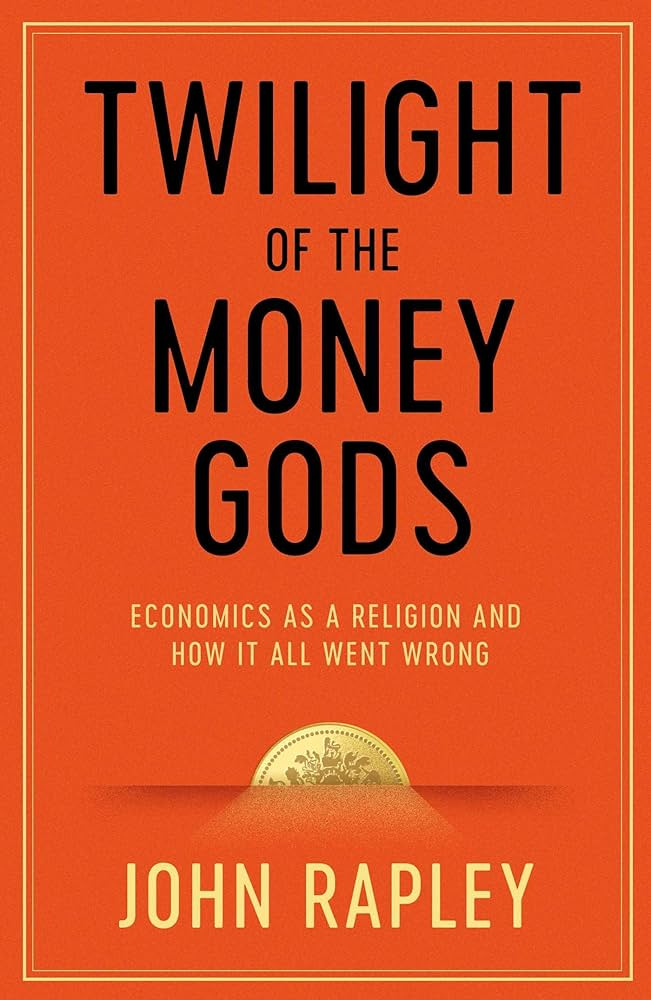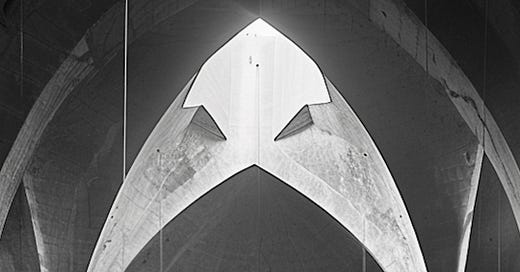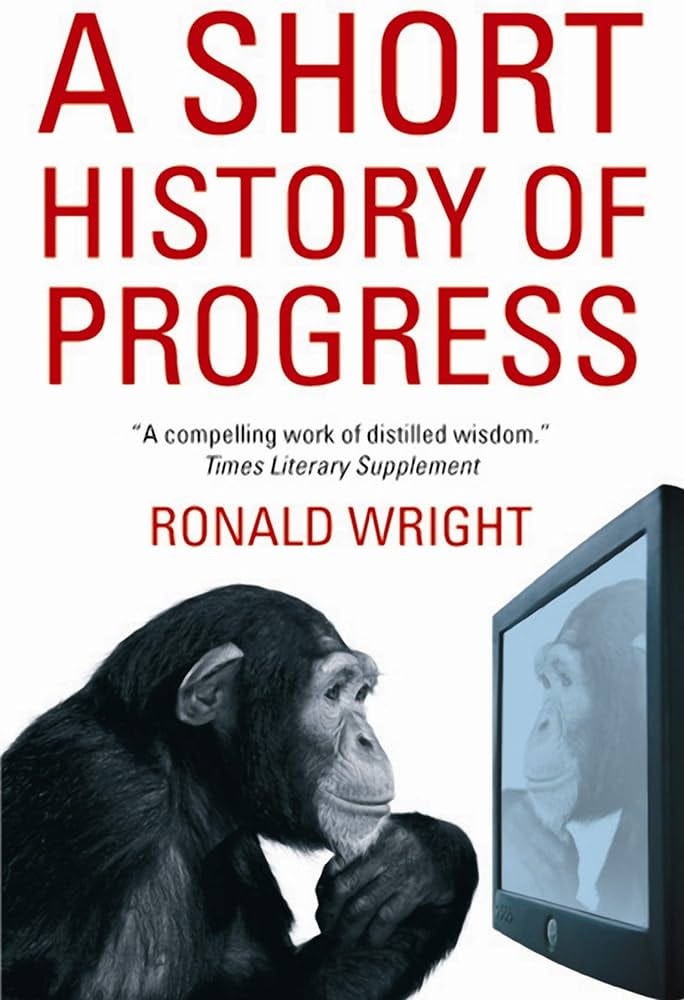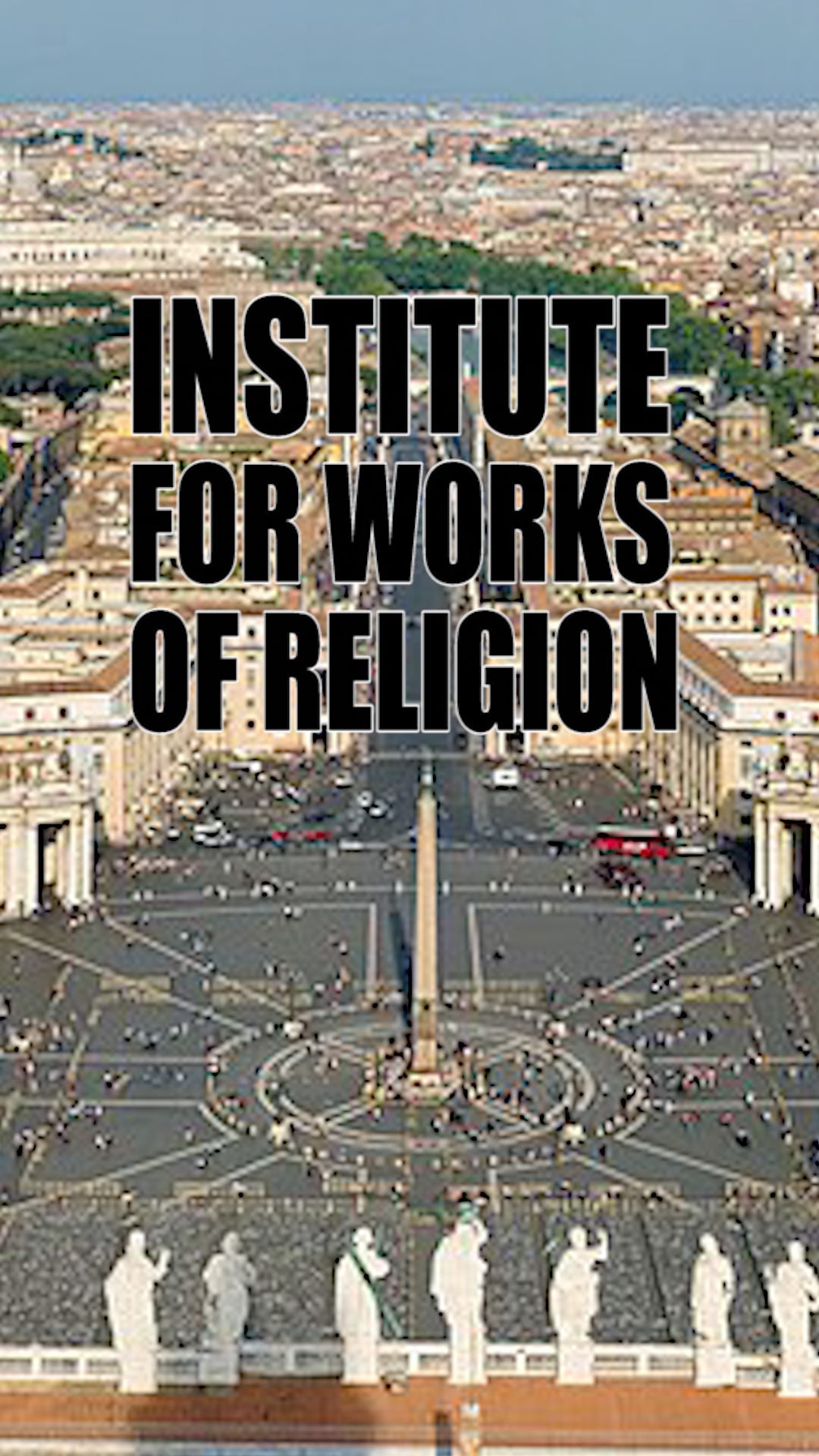Dear readers, TikTok has a great feature that allows you to repost videos from last year “on this day.” This was one of my stronger posts from last year so I thought I would share it here as well, even though I missed my chance to repost on TikTok. I hope you enjoy…
Free Market economics is the new world religion. It has its own prophets, Adam Smith or David Ricardo. It has its own reformations led by John Meynard Keyes and Milton Friedman. It has fundamentalists and fanatics. It has a priestly class, in academia, charged with maintaining orthodoxy and purity.
I didn't always see the similarities between Free Market economics and religions. I remember a passage Ronald Wright wrote in A Short History of Progress. He noted that “…the twentieth century’s struggle between capitalism and communism had all the hallmarks of the old religious wars. Was defending either system really worth the risk of blowing up the world?” Lightbulb! Looking back, the defining antagonisms of the last century weren’t Hindu versus Muslim or Protestant versus Catholic. The earth’s biggest your-side versus my-side conflict was the Cold War. During that standoff the planet was even divided into First World (powerful Western nations) versus Second World (the commies) and Third World (everybody else). With enough nuclear weapons aimed and ready on both sides to destroy the planet thousands of times over, what was essentially a disagreement about the best way to run an economy threatened to end humanity itself.

More fuel was added to the fire when reading a passage from Thomas Frank’s book One Market Under God, where he quoted a flash-in-the-pan publication called Fast Company that discussed corporations becoming the world’s dominant institution, “occupying the position of the church of the Middle Ages and the nation-state of the past two centuries.”
Once I started seeing these similarities, other parallels came fast and furious. Adam Smith’s Wealth of Nations was obviously capitalism’s bible. Smith’s Invisible Hand of the Market essentially replaces the Hand of God. I noticed that the self-interest of capitalism requires an inversion of the Golden Rule – love thy neighbor removes the middle man and becomes simply love thyself. Milton Friedman began to look more like a fundamentalist preacher with a fetish for pain and penchant for purging markets of sin. The more similarities I saw, the more sense it made.

Before going any further I need to introduce you to John Rapley and his book Twilight of the Money Gods, which provides a lot of the background for this series. If you check out my five-star review on Goodreads you'll see that I said this was one of the best history books I have ever read. When I refer to Rapley, I'm referring to this crackerjack book.
So, how does one define religion? It’s safe to dispense with glib answers by those like Sigmund Freud who called it a “collective neurosis,” or Karl Marx (very much a heretic in the eyes of the Free Market faithful) who famously said it was the “opiate of the masses.” A little closer might be Emile Durkheim, who defined religion as “a unified system of beliefs and practices relative to sacred things which unite into one single moral community called a church, all those who adhere to them. Yet it is unnecessary, I think, for a church to call itself a church. As they say, if it walks like a duck and talks like a duck…
Free Market Capitalism has become its own religion. It has its own rituals, supernatural mysteries, theology, and clergy.
Every human being on earth today is part of the global economy. We all take part, whether we want to or not, in the everyday rituals of this global economy. Rather than fasting, praying, or genuflecting, we go to work to earn money and spend it. Rather than passing the plate on Sunday, we participate in the world banking system, buying things with debit or credit cards, and possibly saving money in bank accounts or 401ks.
Even the Vatican has its own bank, code-named the Institute for Works of Religion. No big deal, this bank just manages about $65 billion in assets, holds more than $20 million in gold reserves, and, like just about every other major financial institution, frequently gets into legal trouble for fraud and embezzlement. The Vatican has billions and billions more in assets and land value. Don't forget that holding land used to be the world's primary measure of wealth. The Catholic Church was once the largest landholder in Europe (and still ranks among the top landowners on earth with an estimated 177 million acres – more than a quarter million square miles, roughly the land area of Texas). Not bad!
John Rapley points out how our ancient ancestors used to pray for wealth and happiness – as I’m sure still happens today. However, instead of embracing hardship to earn our eternal reward in heaven, the Free Market faith tells us to scrimp and save to receive dividends here on earth. (Behold the parable of Andrew Carnegie, who saved his $1.50 a week from working in the boiler room and telegraph office so he could invest in the Adams Express Company and eventually become one of the richest men in history, worth about $310 billion in today’s money. Rags to riches.) In the religion of Free-Market Capitalism, the promised land is not heavenly salvation but earthly reward. Materialism and wealth offer a vision of heaven on earth. In the Gospel of John (14:2-3), Jesus talked about mansions in the sky. Why wait for that when there are plenty of mansions with breathtaking ocean views right here on earth in sunny Malibu, California?
“You get what you pay for,” Rapley notes, is a declaration of faith, just the same as a person might say “God is merciful.” The world’s economic system depends on a system of widely shared beliefs that few would ever dare to question: You work for what you earn. If you pay for something it belongs to you. You have a moral obligation to repay your debts. These core convictions form the basis upon which our entire global society operates. When you pull back from these small-scale ideas it’s possible to see that the whole system is built on faith. We all have faith that the green piece of paper we call a dollar is worth something. We have faith that the numbers in our bank accounts can be converted to groceries or gas or to pay rent. The economic system depends on a shared faith that there will be a future and that our hard work will allow us to repay our debts. Rapley says, “This transformation of nothing into something drives our modern economy forward, and though we take it for granted, to ancient eyes it would have looked like a miracle.”
From this shared faith springs the basis for an entire belief system. Some religions call it grace, an understanding of the right way to live and act. In the Taoist religion the “tao” is defined as being right with all that is. Buddhists believe in “kamma” or karma, the law of moral causation – that every action has consequences. Free market economics has its own comprehensive doctrine and moral code promising earthly salvation. Following the precepts of the Free Market, it is believed, will guide humanity to a promised land of broad prosperity. We are told that if we work hard, we will get ahead. We understand that saving money is responsible and good. We must honor our debts and pay on time or face retribution. We are encouraged to invest our savings in the market so that we can all share in its abundance. Believers know that the market is ALWAYS right – just have faith in the market. The religious adherents of Free-Market Capitalism are absolutely convinced that government interference hurts the market, that private ownership is always preferable to public ownership, and that taxation is tantamount to theft.
Next up let's look at some of the Free Market religion's theology and the priestly class entrusted with maintaining orthodoxy. I think you'll find it particularly electrifying. In the meantime, please like, comment, restack, and share to help other people find me here on Substack.
This is part 2 of my series on why Free Market economics is a false religion... be sure to check out PART ONE and subscribe so you can follow the rest.
Let's make them pay.



















Share this post